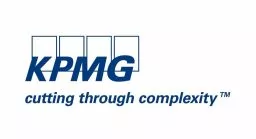SHIPPING COMPANIES
Many but not all of the UK merchant shipping acts since 1894 have been extended to the Cayman Islands. Furthermore, regulations have been made in the Cayman Islands implementing the major international maritime conventions. The Cayman Islands Shipping Registry has been established to adminster the regulatory requirements concerning registration, certification, manning, safety, oil pollution, port state control and other aspects and includes a full compliment of professional marine surveyors. The Cayman Islands are a Category 1 registry. This is the highest category which places them alongside Great Britain as being equipped and qualified to register all classes of vessel. George Town is a port of British Registry.
A ship is entitled to be registered in the Cayman Islands if a majority interest in the ship is owned by one or more qualified persons (a British ship is divided into sixty-four shares, thus thirty-three or more shares would constitute a majority interest). A qualified person is someone qualified to run a British ship. Companies or individuals in the EU or UK dependent territories are qualified persons provided that, in the case of a company, it must have its principal place of business in the Cayman Islands, the United Kingdom, the Isle of Man, the Channel Islands or any other UK Dependent Territory, or in the EU as appropriate.
The Registration of Merchant Ships Law governs the registration of all ships in the Cayman Islands. This Law provides for the registration of vessels over 1,600 gross tons which are chartered by demise for a period of at least three years to a person qualified to own a British ship. This Law also provides for a vessel over 1,600 gross tons registered in the Cayman Islands to be granted dispensation from the Cayman Islands Merchant Shipping Laws and Regulations where the vessel is chartered by demise and is to be registered at the same time under the flag of another country. The Law also facilitates the registration of vessels by allowing the bill of sale and carving and marking to be produced to the Registrar of Shipping within twenty one days of registration rather than prior to registration.
Government registration fees and tonnage taxes are modest. The maximum registration fee for first registration of a vessel is CI$520.00. Tonnage taxes are payable annually according to the gross registered tonnage of the vessel. For vessels not exceeding 200 gross tones CI$60.00 is payable each year. For vessels exceeding 200 and not exceeding 1,000 gross tones the annual tonnage tax is assessed at CI$0.30 per ton. For vessels exceeding 1,000 gross tones, the annual tonnage tax is CI$300 plus CI$0.10 per ton in excess of 1,000 tones.
AIRCRAFT COMPANIES
The Aircraft Navigation (Overseas Territories) Order 1989, sets forth the requirements in respect of the registration of aircraft on the Cayman Islands Register of Civil Aircraft. The Civil Aviation Authority of the Cayman Islands is responsible for the maintenance of this register and all matters such as licensing, certification and regulation of aircraft and air crews. There is an aircraft mortgage register maintained by the Civil Aviation Authority.
A Cayman Islands Company may be a "qualified person" under the terms of the order, notwithstanding that the owners of the company are not themselves qualified persons. To be a qualified person, the company must have its principal place of business within the Commonwealth. This is a question of fact in each case, which is generally determined by enquiry into locality of control of the business of the company.
Registration is discretionary and the Civil Aviation Authority will require to be satisfied as to the proposed ownership structure and operation of the aircraft, together with full information regarding pilots and maintenance personnel and any other relevant considerations that may be deemed appropriate. The policy of the Civil Aviation Authority is not to encourage the registration of civil aircraft operating passenger services. Consequently, most aircraft registered on the Cayman Islands Register of Aircraft are private jet aircraft.
This information provides an introduction to aspects of establishing business in the Cayman Islands for the benefit of clients who may be considering using the Islands as an offshore domicile. It is not exhaustive and is merely intended to give a broad indication of possible courses of action.
Before taking action on any business or other decisions related to the Cayman Islands, specific and particular advice should be sought from domestic taxation, legal, accountancy and other relevant professional advisers.
The information provided reflects the laws and regulations existing at December 31, 1996, but later developments have been noted where possible.
The content of this article is intended to provide a general guide to the subject matter. Specialist advice should be sought about your specific circumstances.
See More Popular Content From

